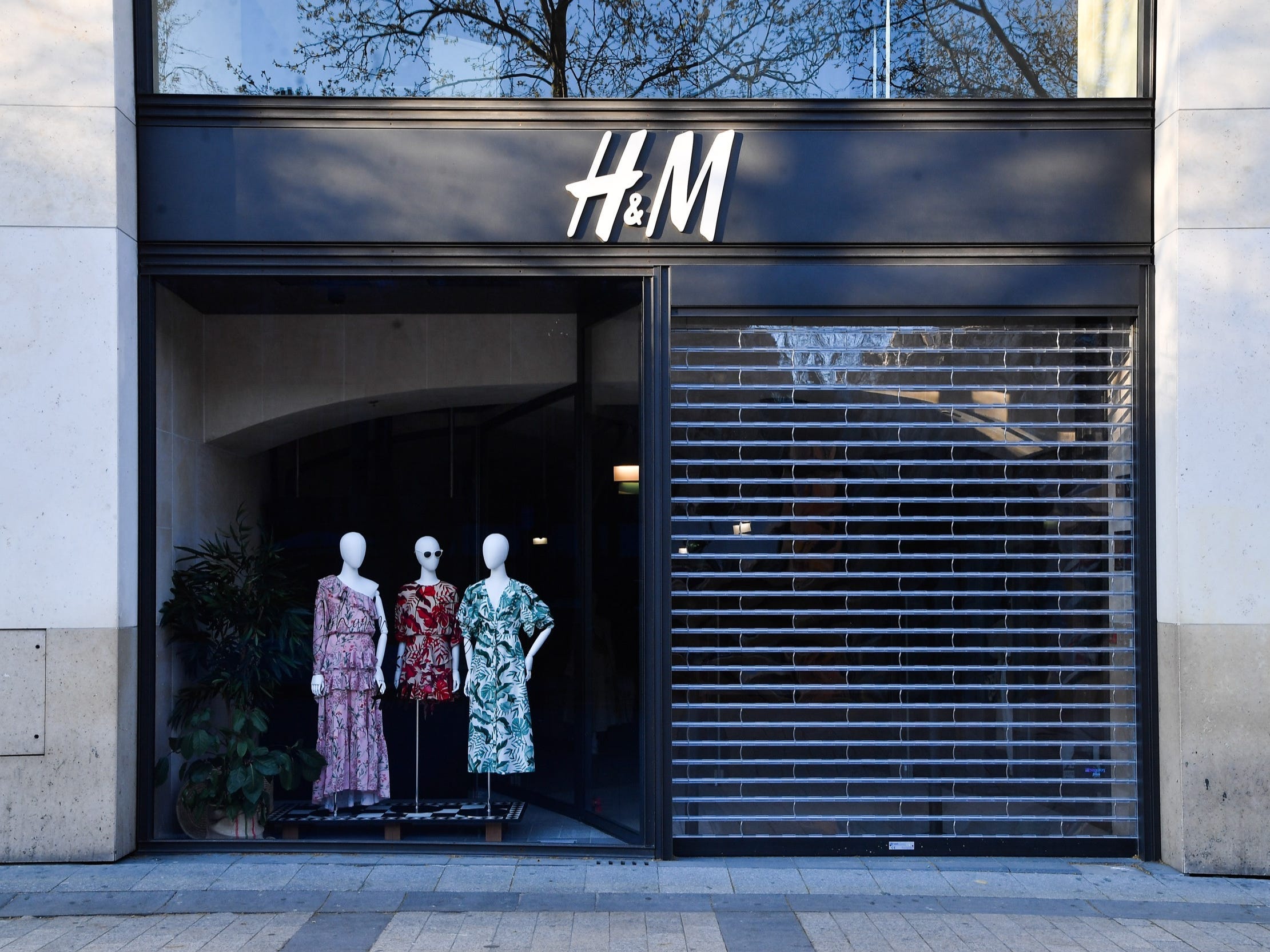
- Fashion giant H&M will close 350 stores in 2021, but will also open just over 100 new stores, resulting in a net decrease of around 250 stores in 2021.
- It’s making the move so it can focus on online sales, the company said on Thursday, which now make up around a quarter of all sales.
- H&M’s pretax profit for the quarter plummeted as sales fell, especially in the US. But the company is continuing to expand into new markets.
- Visit Business Insider’s homepage for more stories.
Fashion giant H&M plans to close 350 stores in 2021 so it can focus on its online sales, it announced on Thursday, after its pretax profit for the quarter more than halved compared to last year.
This means the world’s second-biggest fashion retailer will close around one in 14 stores.
The Swedish company, which owns brands including COS, Monki, and & Other Stores, will also open just over 100 new stores, resulting in a net decrease of around 250 stores in 2021.
This is on top of a net decrease of 50 stores in 2020, mainly in Europe and Africa.
H&M reported quarterly profits more than 10 times higher than analysts had initially forecast. It made around 2.4 billion Swedish krona ($265 million) in profit before tax for the June to August quarter compared to an average forecast of just 191 million krona ($21.8 million) in mid-September.
But this profit was less than half of the 5 billion krona ($561 million) it achieved in the same period a year earlier.
After sales in the previous quarter halved year-on-year, they began to stabilize in the three months to August. Net sales were only 16% down on 2019 at 50.9 billion krona ($5.7 billion) in the third quarter.
Sales in the US, H&M's second biggest market after Germany, fell by more than a third in the quarter compared to last year. Sales in South America, Singapore, and Hong Kong were even worse hit, but these account for a much smaller proportion of H&M's total sales.
But sales are recovering as stores continue to reopen. Total sales in September were only around 5% down on the same month last year, the company said.
As of early October, only around 3% of stores remained temporarily closed, compared to 80% at the peak of the virus. But many of the stores that reopened have limited opening hours.
H&M continues to enter new online markets, and plans to launch online sales in Australia by the end of this year. Its online sales grew by around a third in the second quarter, it said, and now make up around a quarter of all sales. But H&M is also rolling out physical stores in new markets: In September H&M opened a branch of its concept store Monki in the Philippines, and the first H&M store in Panama is scheduled to open in 2021 via franchise.
But while it continues to open new stores, the pandemic has changed the preconditions for rental negotiations, H&M said in its statement. Its contracts allow around a quarter of leases to be renegotiated or exited each year, it said, which allows it to be flexible with the number of stores it has.
"The rapid changes in customer behaviour have been accelerated by Covid-19," the company said in a statement. "The H&M group is therefore now stepping up the pace of its transformation work further, with digital investments, optimisation of the store portfolio and increasingly integrated channels."
